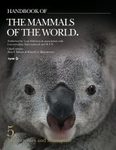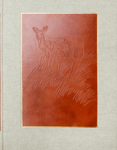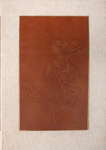By: Robert S Voss(Author), Sharon A Jansa(Author)
313 pages, 26 b/w photos, 23 b/w illustrations, tables
The definitive volume on opossums, a group of ecologically and scientifically important mammals, covering natural history, evolution, behaviour, and biogeography.
![Opossums Opossums]()
Click to have a closer look
About this book
Contents
Customer reviews
Biography
Related titles
About this book
Opossums are the most diverse and ecologically important group of New World marsupials, although only the Virginia opossum is familiar to North American residents. In fact, many species of opossums are found in Neotropical rainforests, savannas, and other habitats, where they are key participants in food webs and other ecological relationships. One species, the short-tail opossum (Monodelphis domestica), has recently become a model organism for biomedical researchers. Eclipsed in the public imagination by their Australian relatives, opossums remained for many years a somewhat obscure group, of interest primarily to taxonomists and students of mammalian reproduction. While thousands of scientific articles have appeared in recent years on opossum systematics, morphology, behavior, physiology, genetics, and ecology, this important but widely scattered literature has never been effectively summarized – until now.
In Opossums, the first book-length treatment of these fascinating organisms, recognized authorities Robert S. Voss and Sharon A. Jansa synthesize a wide range of available information about the diversity, comparative biology, and natural history of the opossum. Peering into every biological facet of the lives of these long-neglected mammals, Opossums: An Adaptive Radiation of New World Marsupials includes:
- introductory chapters explaining the palaeontological and biogeographic context for opossum evolution
- an overview of the extant fauna, which includes over 100 species in 18 genera
- a section devoted to opossum phenotypes: morphology, physiology, and behaviour
- detailed information on opossum natural history, including habitats, diets, predators, and parasites
- in-depth and novel interpretations of opossums' adaptive radiation in a phylogenetic context
Intended for undergraduate biology majors, graduate students, and research professionals, this coherent and original portrait of opossums will be of particular interest to mammalogists, evolutionary biologists, and Neotropical field biologists as well as biomedical researchers working with Monodelphis domestica as a model organism.
Contents
Acknowledgments
Introduction
Part I. Phylogenetic Context and Historical Biogeography
Chapter 1. Metatheria and Marsupialia
Chapter 2. South America, the Island Continent
Chapter 3. The Great American Biotic Interchange and Its Aftermath
Part II. Opossum Classification and Diversity
Chapter 4. Taxonomic Accounts
Part III. Opossum Phenotypes
Chapter 5. Morphology
Chapter 6. Physiology
Chapter 7. Behavior
Part IV. Opossum Natural History
Chapter 8. Habitats
Chapter 9. Diets
Chapter 10. Parasites
Chapter 11. Predators
Chapter 12. Competitors and Mutualists
Chapter 13. Population Biology
Part V. Synthesis
Chapter 14. Adaptive Radiation
Appendix 1. A Checklist of Living Opossums (Didelphidae)
Appendix 2. Fruit Taxa Eaten by Opossums in French Guiana
Appendix 3. Prey Taxa Eaten by Opossums in Southeastern Brazil
References
Index
Customer Reviews
Biography
Robert S. Voss is a curator of mammals at the American Museum of Natural History and an adjunct professor at the Graduate Center of the City University of New York. Sharon A. Jansa is a curator of mammals at the Bell Museum and a professor of ecology, evolution, and behaviour at the University of Minnesota.
By: Robert S Voss(Author), Sharon A Jansa(Author)
313 pages, 26 b/w photos, 23 b/w illustrations, tables
The definitive volume on opossums, a group of ecologically and scientifically important mammals, covering natural history, evolution, behaviour, and biogeography.
"The definitive resource on opossums. Completely original and full of top scholarship. A truly beautiful work."
– Marcelo R. Sánchez-Villagra, University of Zurich
"Synthesizing the very disparate, even incomplete, literature into a coherent account of opossum diversity, this book also provides a counterweight to what the authors term the 'ecogeographic bias' in the marsupial literature. This badly needed volume fills an enormous gap in the marsupial story to date."
– James L. Patton, University of California, Berkeley
"There is no other good source available on these marsupials; this book is the only one of its kind. Opossums will appeal to evolutionary biologists, paleontologists, mammalogists, and even ecologists who study mammals."
– Stephen Brusatte, University of Edinburgh



































